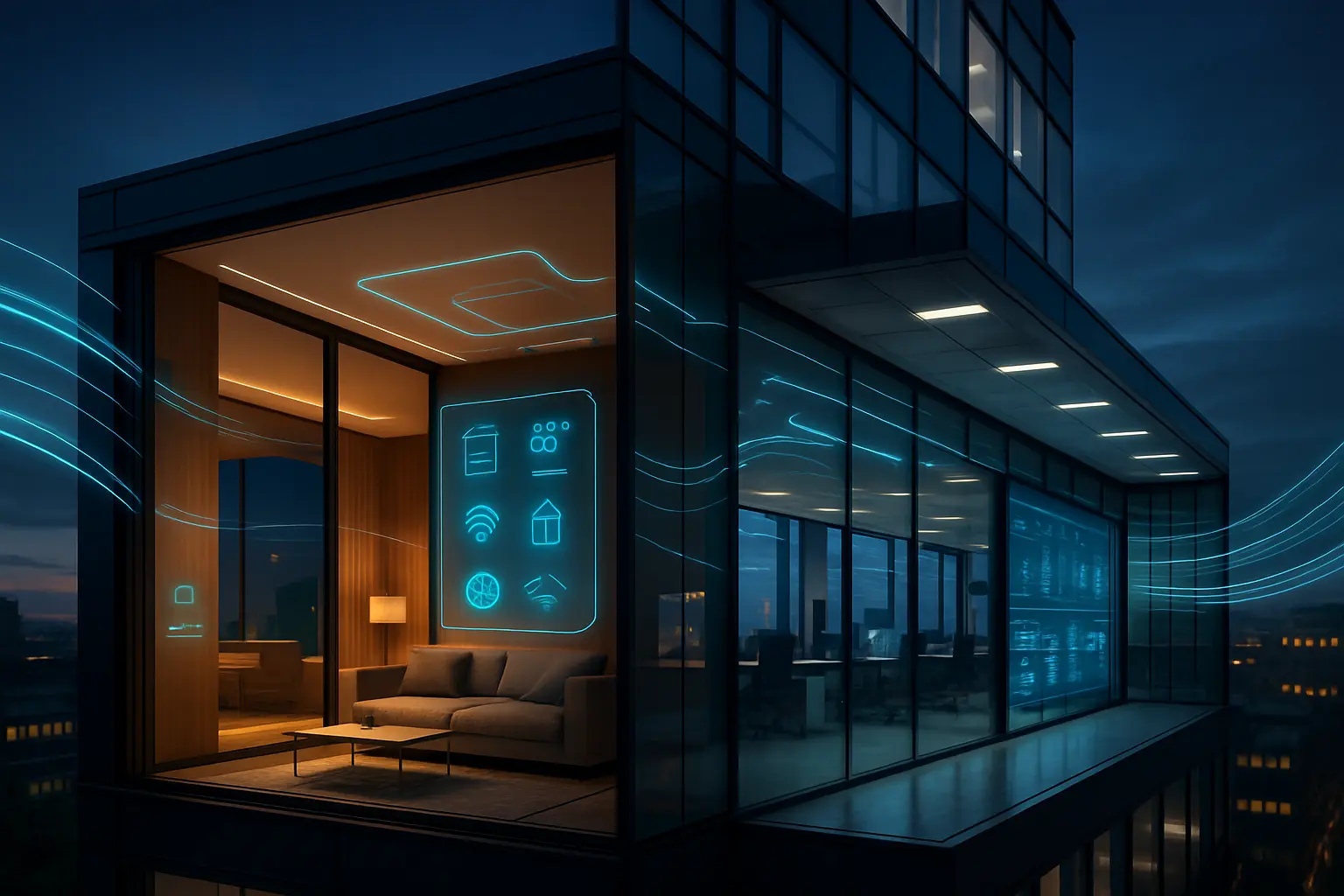Smart Buildings Revolution: Where Commercial and Residential Spaces Converge
Discover how integrated technology is reshaping modern properties and creating unprecedented opportunities for investors and homeowners alike

The Evolution of Smart Building Integration
The convergence of commercial and residential smart building technology marks a revolutionary shift in how we interact with our built environment. Intelligent systems are no longer exclusive to high-end commercial properties but have become increasingly prevalent in residential spaces, creating a seamless blend of comfort and efficiency.
Modern buildings now incorporate sophisticated automation systems that manage:
- Climate control and air quality monitoring
- Lighting optimization and circadian rhythm support
- Energy consumption and distribution
- Occupancy-based resource management
Sustainable Solutions and Cost Benefits
The economic impact of smart building integration extends far beyond initial investment costs. Property owners and managers are witnessing substantial returns through:
- Reduced energy consumption through AI-powered optimization
- Decreased maintenance costs via predictive analytics
- Enhanced property values and market competitiveness
- Lower insurance premiums due to advanced safety features
Studies show that smart buildings can reduce energy consumption by up to 40% while increasing property values by 15-20% on average.
Security and Connectivity
The integration of advanced security systems with IoT capabilities has revolutionized property protection and access control. Modern smart buildings feature:
Enhanced Security Features
- Biometric access control systems
- AI-powered surveillance with anomaly detection
- Encrypted communication networks
- Remote monitoring and management capabilities
Seamless Connectivity
The backbone of smart buildings lies in their robust connectivity infrastructure, enabling:
- 5G and Wi-Fi 6E integration
- Edge computing for real-time response
- Cloud-based building management systems
- Inter-device communication and automation
Future-Proofing Real Estate
Investment in smart building technology represents a strategic approach to future-proofing real estate assets. Forward-thinking property developers are focusing on:
- Flexible infrastructure that adapts to emerging technologies
- Sustainable and renewable energy integration
- Health and wellness-focused amenities
- Data-driven property management solutions
The convergence of commercial and residential smart building technologies is creating unprecedented opportunities for property owners and investors. As these systems become more sophisticated and interconnected, the line between commercial and residential spaces continues to blur, leading to more efficient, sustainable, and valuable real estate assets.
The future of real estate lies not just in the physical structure but in the intelligent systems that make buildings responsive, efficient, and human-centric.


